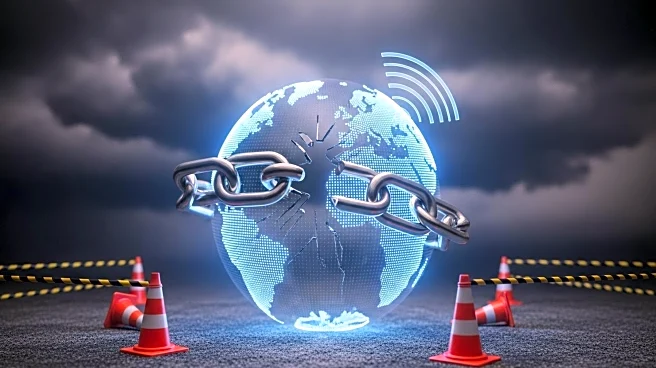What's Happening?
Equatorial Guinea has cut internet access to Annobón island following protests against construction activities by a Moroccan company. Residents complained about dynamite explosions polluting farmlands and water supply. The internet shutdown has led to significant disruptions, including the cessation of banking and emergency hospital services. The government has not responded to inquiries about the situation, and the shutdown remains in effect. The island, with a population of around 5,000, has a history of conflict with the central government and has been seeking independence.
Why It's Important?
The internet shutdown in Annobón highlights the repressive measures used by governments to silence dissent. This action disrupts essential services, exacerbating poverty and isolation on the island. The situation underscores the broader issue of internet censorship as a tool for political control, affecting human rights and freedom of expression. The Trump administration's consideration of loosening corruption sanctions on Equatorial Guinea's vice president adds a layer of complexity to international relations and human rights advocacy.
What's Next?
The ongoing internet shutdown may lead to increased international scrutiny and pressure on Equatorial Guinea to restore access and address the grievances of Annobón's residents. Human rights organizations may intensify their advocacy efforts, and diplomatic channels could be explored to resolve the situation. The government's response, or lack thereof, will be closely watched by both domestic and international stakeholders.
Beyond the Headlines
The situation in Annobón reflects broader issues of governance and resource management in Equatorial Guinea. The island's marginalization is not only political but also cultural and economic, highlighting the need for inclusive development policies. The construction activities by the Moroccan company raise questions about environmental impact and corporate responsibility in resource-rich regions.









